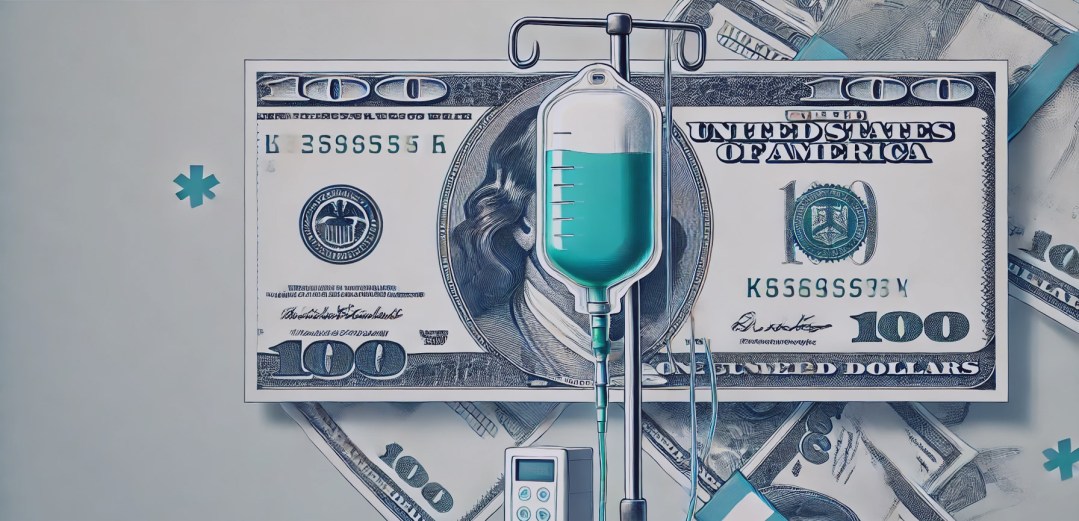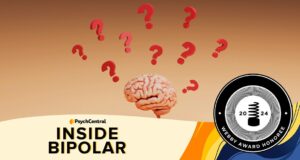
Ketamine and esketamine (Spravato) have been breakthrough treatments for depression, but unfortunately, many people can’t afford ketamine or esketamine (more on the differences in a moment). This is the tragic reality of so many new treatments (especially in the United States) — they exist but are unavailable to the people who need them most. However, I’ve recently learned of an antidepressant, dextromethorphan/bupropion, that works similarly to ketamine or esketamine, which may be an option for those seeking a new, unique depression treatment, particularly for treatment-resistant depression. Here’s more on dextromethorphan vs ketamine as depression treatment.
Ketamine Vs Esketamine? How Do They Work?
Ketamine is a dissociative anesthetic approved in the United States for inducing and maintaining anesthesia via intravenous infusion or intramuscular injection. It is not indicated for major depressive disorder (MDD) or TRD [treatment-resistant depression], although it is frequently used off-label for these indications.
Ketamine is a N-Methyl-D-aspartate (NMDA) receptor agonist. This results in an increase in the release of glutamate, which leads to many downstream effects. (This is interesting because I have been talking about how useful glutamate might be for depression for years.)
Esketamine (Spravato) is the (S) enantiomer of racemic ketamine. Esketamine is the active enantiomer of ketamine in terms of NMDA receptor antagonism. It also increases levels of glutamate. It is Food and Drug Administration (FDA)-approved for adults with treatment-resistant depression and adults with major depression with suicidal thoughts or actions in combination with an oral antidepressant.
Ketamine Vs Esketamine — To Simplify
I know it’s a bit confusing, but it has been explained to me that ketamine is made up of two mirror-image compounds: esketamine and arketamine. These two halves have many of the same properties and methods of action as ketamine. Right now, esketamine is being produced and marketed in an intranasular form as Spravato. It is used to treat depression and is FDA-approved. Ketamine is being used in an intravenous (IV) infusion form off-label to treat depression. (I suspect arketmaine may come in the future.)
Ketamine and Esketamine (Spravato) Are Expensive
Ketamine tends to be very expensive as while the drug itself is cheap (it’s a generic that’s been around since the 1960s), it requires medical personnel to administer the IV infusion and monitor people afterward. Esketamine (Spravato) is expensive because it’s a brand-name drug that the company is charging a fortune for, and the patient must be observed for hours after administration in the doctor’s office.
Some people have access to one or both of these drugs through their insurance, but many people don’t. I think this is a huge shame. I despise knowing there are things that could help people, but they are out of reach because of money. (If you’re trying to get your hands on esketamine (Spravato), see here for cost support.)
Ketamine Vs Dextromethorphan/Bupropion (Auvelity)?
This brings me to my point. There is an antidepressant that was approved for use in August 2022 called Auvelity. It is a combination of dextromethorphan (Robitussin) and bupropion (Welbutrin). If you recognize the name “Robitussin,” that might be because it’s a cough suppressant and is available over the counter in various formulations. It was first FDA-approved in 1958 and has been put in numerous combinations for various treatments since. Welbutrin, of course, is a common antidepressant that was initially FDA-approved in 1985, although there were issues with the formulation and a sustained-release version was approved in 1996. It became popular at that point.
Dextromethorphan works on the NMDA receptors and modulates glutamate. Bupropion is combined with it to increase the bioavailability of the dextromethorphan. In other words, bupropion allows the dextromethorphan to be available to your body long enough so that it has a chance to work. One rather brilliant company figured this all out, packaged them together, and branded them Auvelity.
Why Does the Alternative Depression Treatment Dextromethorphan Matter for People Wanting Ketamine?
If you’ve been paying attention (I know it’s been a bit weighty), you might have noticed that dextromethorphan and ketamine have a similar method of action (they work in similar ways). You can think of dextromethorphan as the weaker cousin of ketamine. In other words, if ketamine works for you, then dextromethorphan might work too.
This is great for a few reasons:
- You can take dextromethorphan/bupropion in pill form at home, and you don’t have to be supervised.
- Dextromethorphan/bupropion is widely available.
- Dextromethorphan is much less expensive (and you might even have a better chance of it being covered by your insurance).
According to the Amazon pharmacy, Auvelity costs $657.60 without insurance or about $35 with insurance per month. This is much less than esketamine (Spravato) or ketamine.
But You Can Probably Get Dextromethorphan and Burprion for Less!
But there’s more to the story. Because Auvelity is a combination of two readily available drugs, you may be able to get bupropion (which your insurance will most likely pay for as there’s a generic) and dextromethorphan separately. You may have to get the dextromethorphan created for you at the correct dosage at a compounding pharmacy, so I can’t tell you what that might cost, but I strongly suspect it is wildly less than $657.60 per month.
Evidence for Dextromethorphan/Bupropion in Depression and Treatment-Resistant Depression Treatment
Of course, everyone is different, but when it comes to major depressive disorder, multiple studies say things like this:
These data suggest that dextromethorphan-bupropion is an effective, fast-acting, and well tolerated option for depression treatment and produced remission in a large percentage of patients.
Note that it says fast-acting. For people with depression, this is welcome news. (I’m not saying it doesn’t take longer for some people, however)
Dextromethorphan/Bupropion for Bipolar Depression
Now, when it comes to bipolar depression specifically, there are all the concerns that one might have with treatment with any antidepressant. As for evidence, the usage of dextromethorphan/bupropion has shown mixed results in treating bipolar depression. I, personally, don’t feel this means it’s worth writing it off, though, especially if you’re at a treatment roadblock.
Also, other studies combine dextromethorphan with compounds other than bupropion, and there seems to be some promise there, too.
What to Know About Dextromethorphan as an Antidepressant
The long and the short of it is this: dextromethorphan, especially with bupropion, is well worth considering as an antidepressant, especially if you’re treatment-resistant. It works in a unique way, which means that if you’ve failed many other treatments, you may just respond to this. Ketamine or esketamine might also work in a situation like that, but they are far more expensive.
Keep in mind that you should only ever take a medication that you and your doctor feel is right for you. You might find some weird side effects with this medication precisely because it is different than other antidepressants. You also need to understand the risks before starting any treatment. I’m not endorsing or recommending this medication; I’m just giving you some information so you can be more informed when you walk into your next doctor’s appointment. I hope this alternative may help people who can’t access some other treatments.
Other Posts You Might Enjoy




